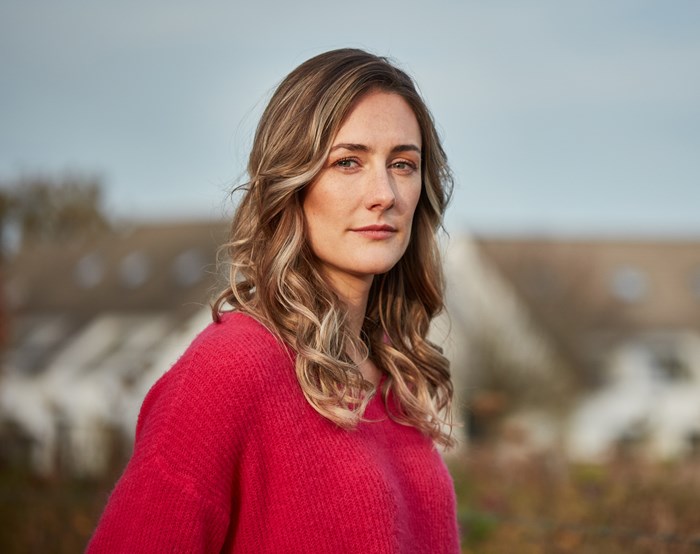Treatment clinic U-center
PTSD-treatment
An extremely distressing event can cause PTSD or posttraumatic stress disorder. At U-center, you’ll receive various forms of trauma treatment in an intense, short-term trajectory to recover from your PTSD.
Communication center
Speak with a professional
How can we help you?
Please feel free to contact us. We are happy to help you!
or call us on 0031-343556400

The occurrence of PTSD and its symptoms
Living through or witnessing traumatic events can have an incredible impact on your mind and body. Feeling stressed after a shocking event is a normal, logical reaction. When it results in PTSD, the symptoms can be overwhelming and they can inhibit you from living a normal, healthy life. However, none of these symptoms have to be permanent. You can recover from PTSD.
What you can do to recover from PTSD
Short-term options
If you want to deal with the flashbacks and memories of the traumatic event, distraction can be an effective short-term method. Try to distract your mind with activities such as puzzling, listening to music or physical exercise that requires coordination. Other than that, you could try to get some rest, talk about your trauma to those you trust and let in the painful feelings as much as possible.
Consulting a doctor
However, if your PTSD-symptoms don’t diminish after one month, you can consult a doctor. Tell them about what happened and what you are feeling. The doctor can then diagnose you, perhaps with PTSD, possibly referring you to trauma treatment.
If you suffer from serious PTSD complaints this disrupts your life significantly. These complaints have an impact on your relationships and your work and may lead to addictions (drugs of medicine) in an attempt to cope with the stress. So don’t wait too long to ask for help. With the right treatment you can recover from PTSD.

Trauma therapy methods
Trauma-focused therapy is much more effective than non-trauma-focused therapy. The recommended treatments based on extensive research are: cognitive behavioural therapy CBT, (Imaginary) Exposure (IE), Cognitive Therapy and Eye Movement Desensitisation and Reprocessing (EMDR).
Effective new methods to treat PTSD are: Brief Eclectic Psychotherapy (BEPP), Narrative Exposure Therapy (NET), writing therapy and Imaginary Rescripting (ImRs)). Because psychological treatment is more effective than medication, drug treatment is not recommended as the first treatment step.
EMDR therapy for PTSD
EMDR, or Eye Movement Desensitisation and Reprocessing, is a type of therapy that has become more popular over the last couple of years. It’s used as a PTSD-treatment at U-center and approaches mental health problems in a refreshing way.
This type of therapy doesn’t use conventional conversation or medication, but a patient’s eye movements. The rapid movement of your eyes can decrease the intensity of your emotions linked to traumatic memories.
A treatment session
A healthcare professional will ask you to follow a moving object, light (often an EMDR-lamp) or the hand of the therapist using only your eyes. Simultaneously, you will be asked to think of your trauma, including everything you felt at the time of its occurrence. Then, your therapist will slowly help you move towards more neutral thoughts.

Cognitive Behavioural Therapy for PTSD
Cognitive behavioural therapy, or CBT, is a type of therapy that U-center uses to help patients recover from PTSD and other severe mental issues. When treating PTSD this is called Trauma Focused CBT, or TF-CBT. This type of therapy consists of two parts, one focusing on the cognitive side and one focusing on behaviour. Treatment methods used in TF-CBT are cognitive therapy and (imaginary) exposure. Cognitive behavioural therapy usually focuses on reprogramming certain - unhelpful - thinking patterns. Your therapist might help you do this by helping you face your fears, using role play and/or teaching you to relax your mind and body.
How U-center treats PTSD
Treating PTSD and underlying complaints
The impact of PTSD in your daily life varies from person to person. PTSD often lies at the base of personality issues, addictions, lifestyle, or relationship problems. Those require customised therapy that approaches the patient as a whole, considering everything that may have an impact on the patient’s life and the trauma.
At U-center, we treat PTSD with a variety of therapies, EMDR and cognitive behavioural therapy being the most important ones. Underlying issues related to your PTSD complaints can be included in the therapy. During the intake phase of your treatment, you’ll have conversations with a psychologist, psychiatrist, or psychotherapist. The result of these conversations will help us determine the proper therapy together with you. You’ll have multiple sessions to move towards recovery.
Clinical admission
During an intense, 7-week stay, we’ll do anything to help you recover. That way, you can make progress and process your trauma in a short amount of time. In order to help you recover, we’ll need you to be an active contributor to your recovery.
During your stay at our clinic in Epen, you’ll work with different trauma treatments in a fixed treatment team. You will add your goals to your personal treatment plan and how you aim to reach those goals with your practitioners. The hospitable environment and our clinic’s facilities will give you the environment you need to process trauma.
Relapsing after treatment
It’s possible that you leave the clinic completely recovered, but that you are faced with a distressing event a while after your admission. During treatment you will create a plan together with your treatment team to prevent relapse as much as possible. This plan will help guide you if your PTSD-symptoms return temporarily. Prioritising your rest, keeping your life structured and letting in the painful feelings, will help minimise these symptoms as much as possible
Recovery at U-center
U-center will help you start your PTSD-recovery at our mental health facilities. Our clinic offers the calming environment with the structure you need. Furthermore, there are plenty of activities and therapies to help you move towards a full recovery in a way that respects your pace.
In addition to that, our experts have experience with comorbidity and understand that every patient is an individual. Therefore, every treatment plan is customised to the patient’s unique needs. Want some more information? You can find a great deal of information on PTSD and our treatment center online. Or you can contact us directly.
Contact us